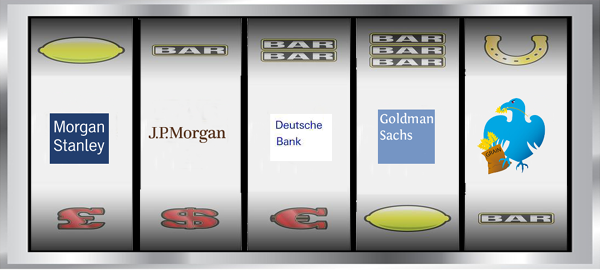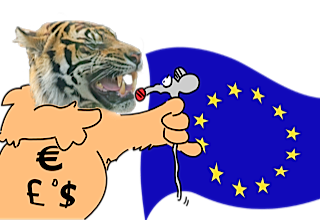Food campaigners are accusing five international banks of raking off more than two billion pounds from speculating on food prices over the past two years. The announcement coincided with European Union meetings to agree on measures to regulate aggressive trading, in which consignments of basic commodities such as grain or soya change hands and rise in price without going anywhere.
 Anti-poverty campaign group the World Development Movement (WDM) recently released an analysis of the global commodity markets. It attributes food commodity trading worth around GBP 2.2 billion (nearly EUR 3 billion) to top global investment banks Goldman Sachs, Barclays, Deutsche Bank, JP Morgan and Morgan Stanley.
Anti-poverty campaign group the World Development Movement (WDM) recently released an analysis of the global commodity markets. It attributes food commodity trading worth around GBP 2.2 billion (nearly EUR 3 billion) to top global investment banks Goldman Sachs, Barclays, Deutsche Bank, JP Morgan and Morgan Stanley.
“Our figures show that despite the efforts of some banks to distance themselves from this unethical practice, the big players continue to make vast returns from food speculation,” warns WDM director Nick Dearden. WDM recently revealed that the UK Treasury is actively planning to weaken proposed EU measures to curb speculation on strategic commodities, such as food.
Whether the European Commission’s September roadmap for imposing rules on money market funds will ever lead to effective regulations reaching the statute book in either the current or the next European Parliament is a moot point. The money that can be made in the murky world of shadow banking is just too great for traders to want to forsake it.
The UK government is adding its own tilt to the texts on the table, while financial groups have carried out heavy lobbying to head off attempts to curb a rich and powerful elite from preying on the poor and the hungry.





